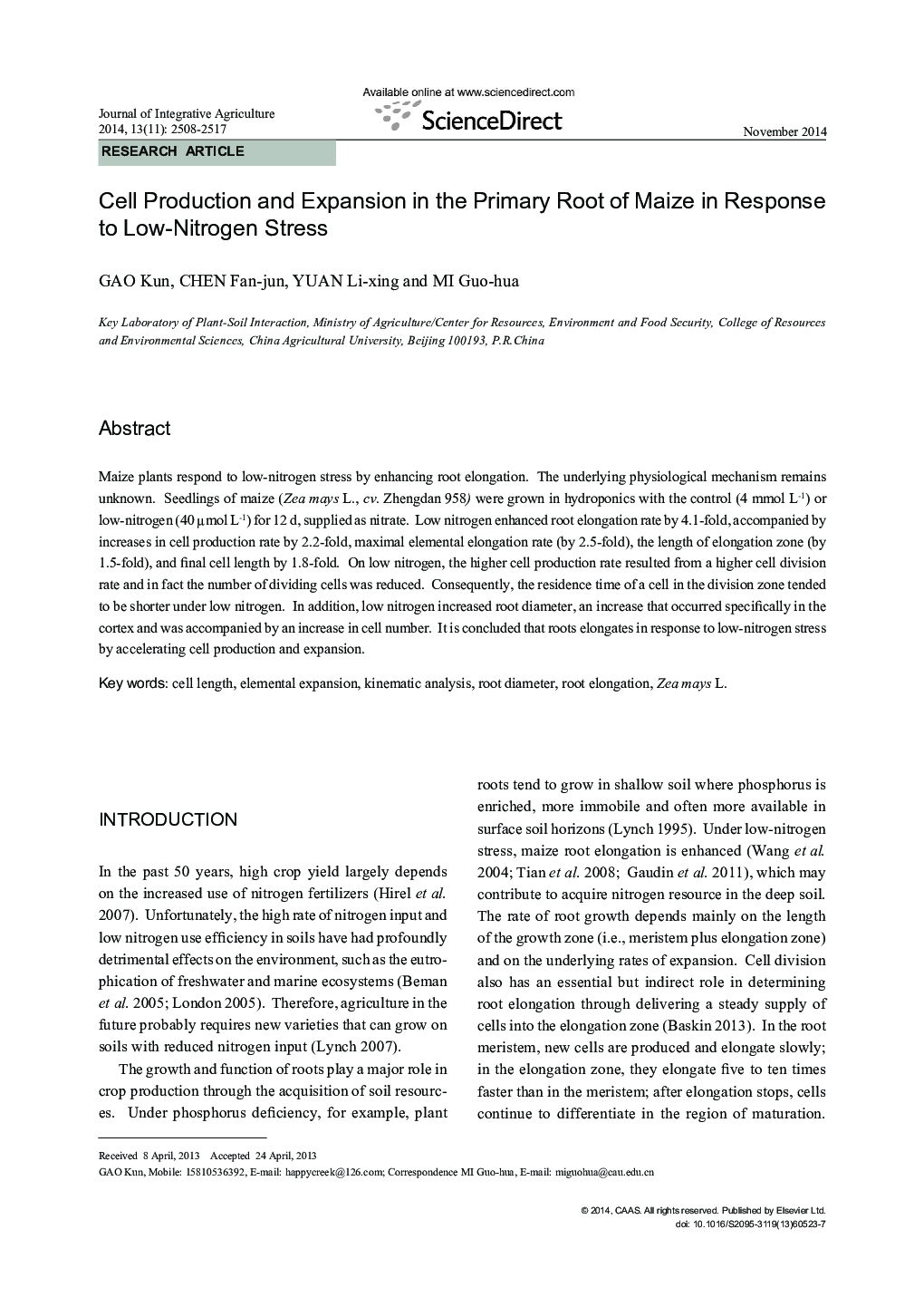| Article ID | Journal | Published Year | Pages | File Type |
|---|---|---|---|---|
| 4494447 | Journal of Integrative Agriculture | 2014 | 10 Pages |
Maize plants respond to low-nitrogen stress by enhancing root elongation. The underlying physiological mechanism remains unknown. Seedlings of maize (Zea mays L., cv. Zhengdan 958) were grown in hydroponics with the control (4 mmol L−1) or low-nitrogen (40 μmol L−1) for 12 d, supplied as nitrate. Low nitrogen enhanced root elongation rate by 4.1-fold, accompanied by increases in cell production rate by 2.2-fold, maximal elemental elongation rate (by 2.5-fold), the length of elongation zone (by 1.5-fold), and final cell length by 1.8-fold. On low nitrogen, the higher cell production rate resulted from a higher cell division rate and in fact the number of dividing cells was reduced. Consequently, the residence time of a cell in the division zone tended to be shorter under low nitrogen. In addition, low nitrogen increased root diameter, an increase that occurred specifically in the cortex and was accompanied by an increase in cell number. It is concluded that roots elongates in response to low-nitrogen stress by accelerating cell production and expansion.
